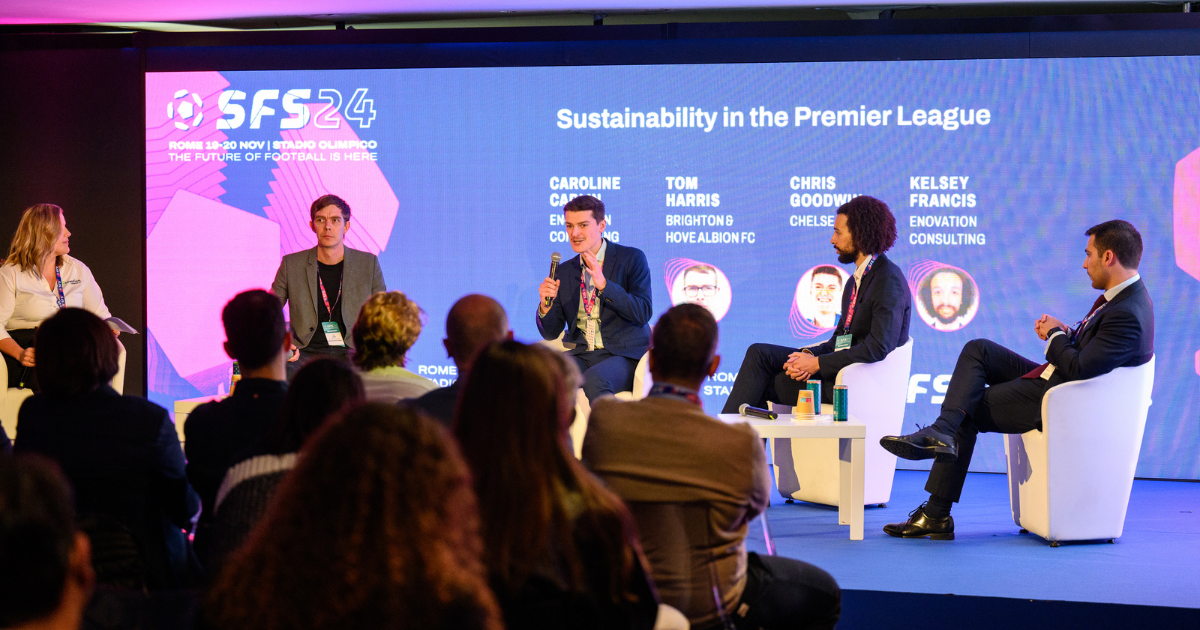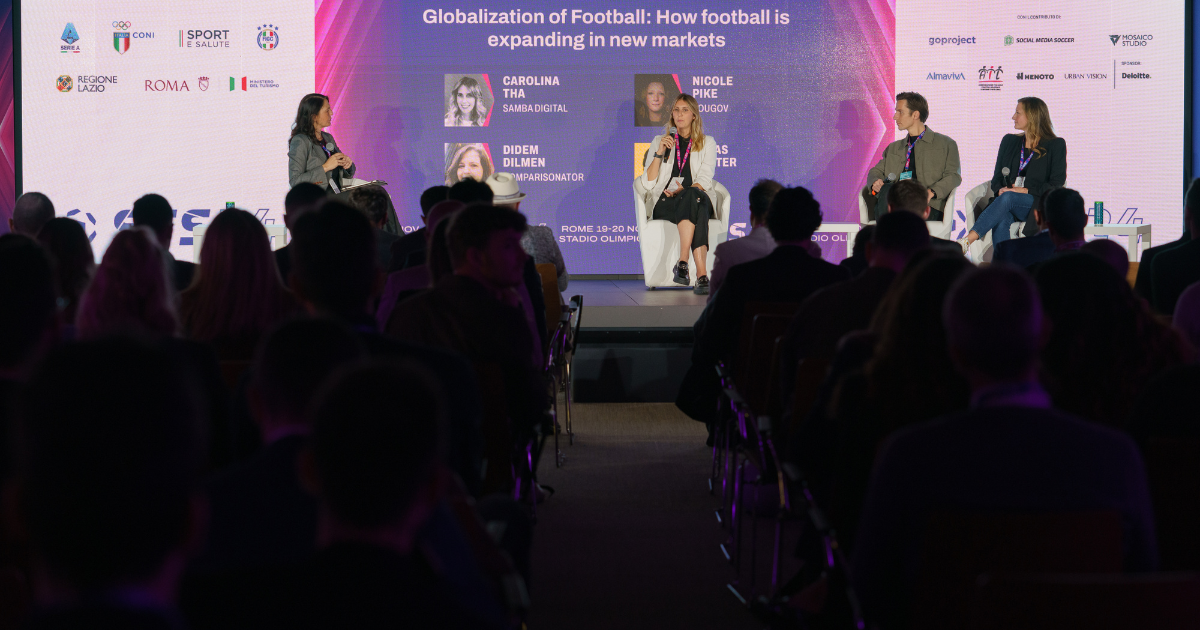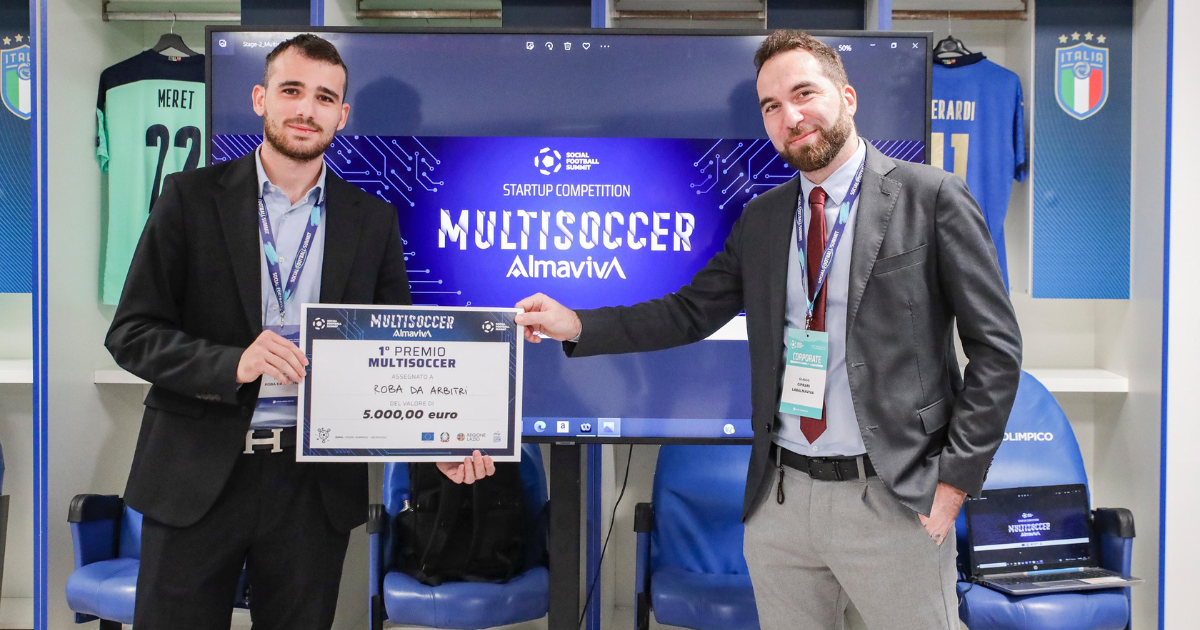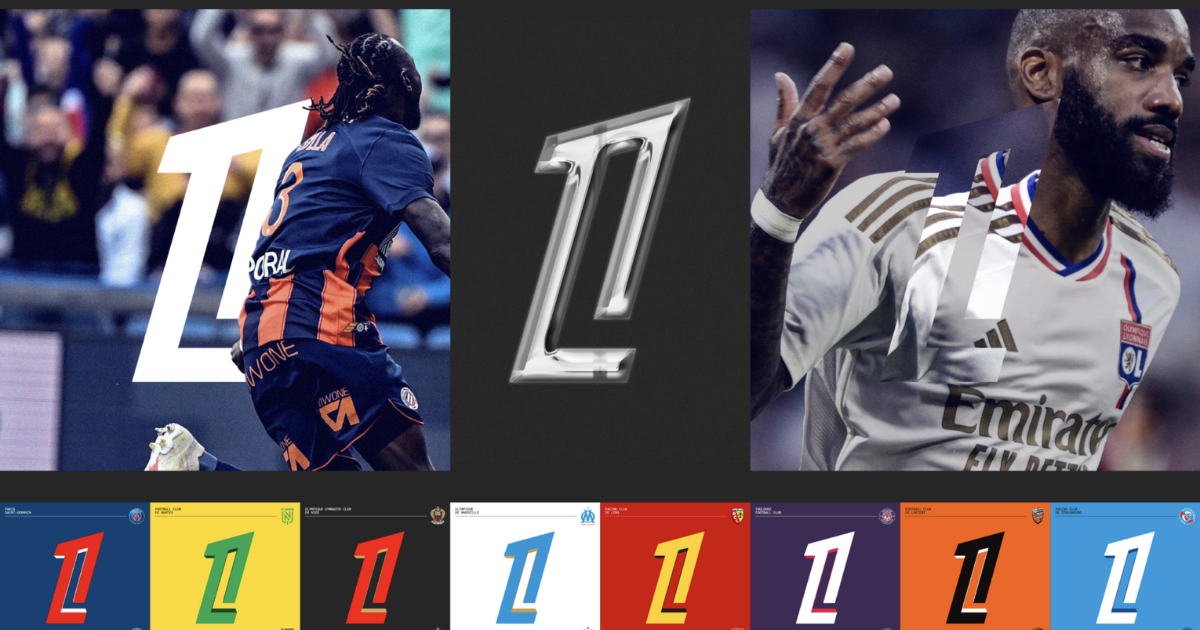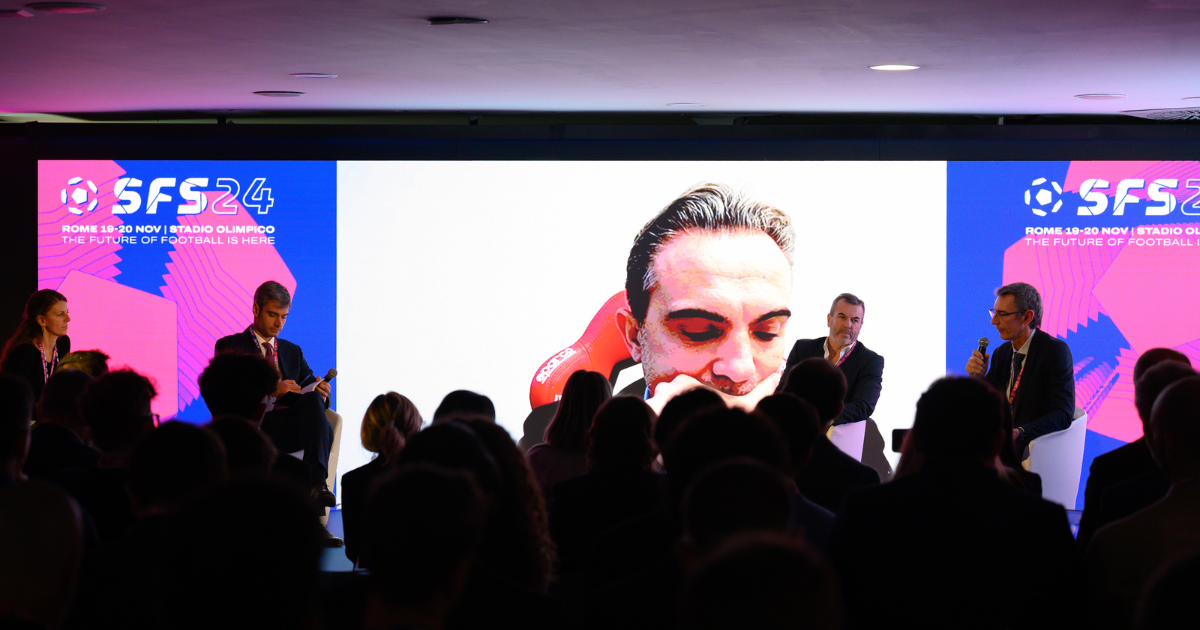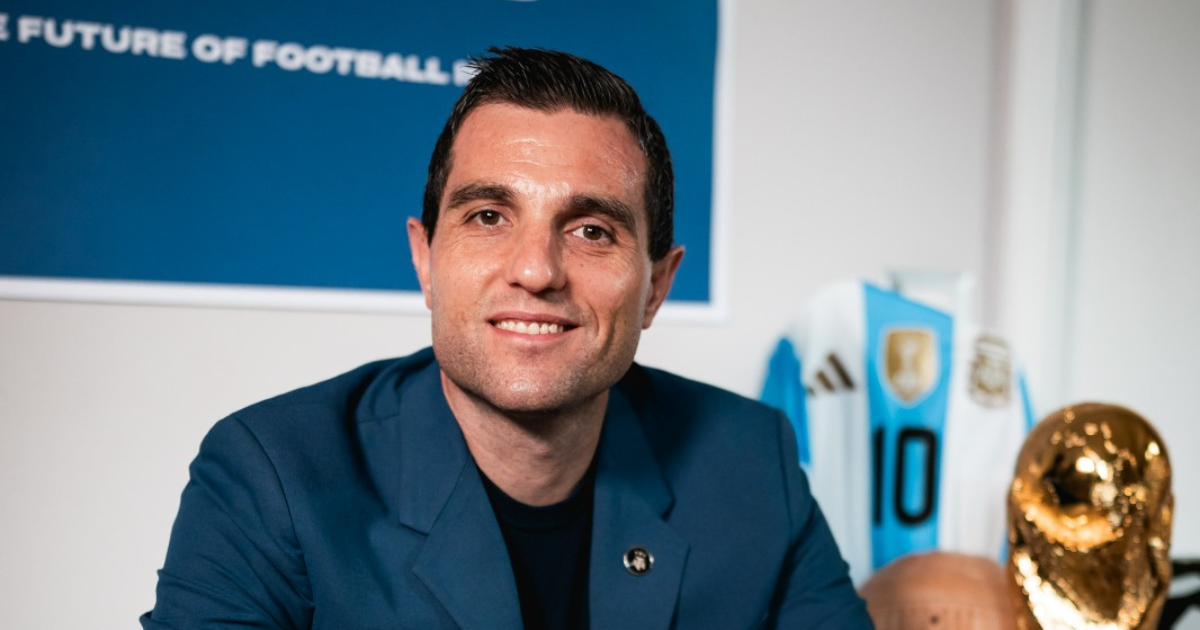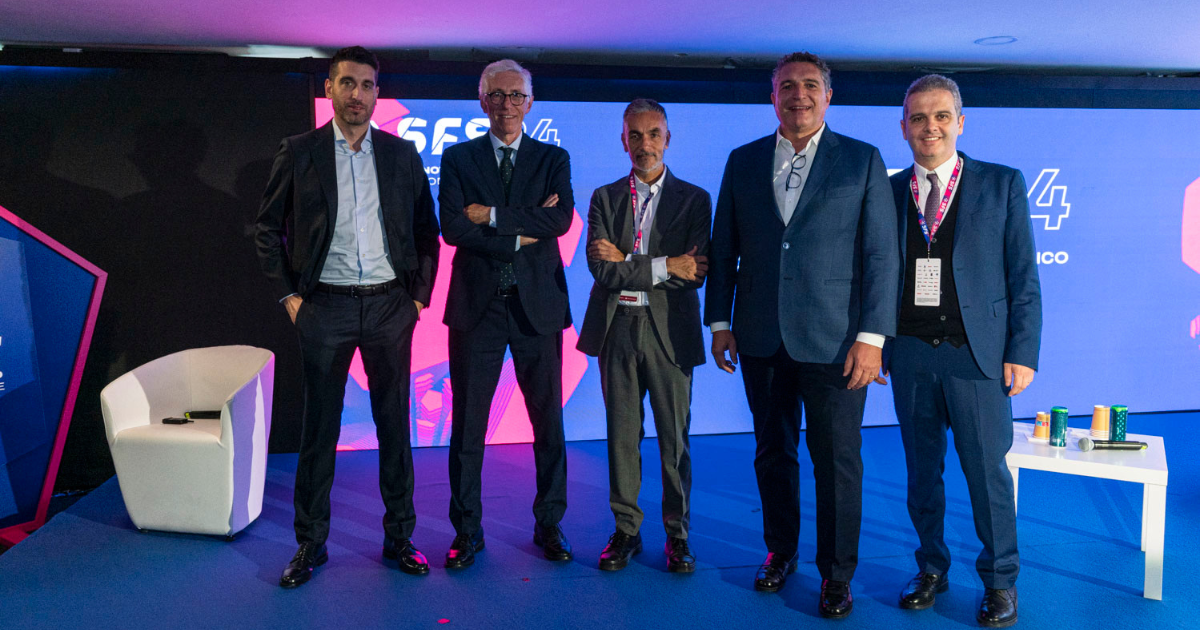During an engaging panel organized by SFS24, industry experts and managers examined the crucial role of sustainability in soccer, focusing on how Premier League clubs are adopting environmental, social and governance (ESG) strategies to innovate and transform their operating model.
The panel featured prominent figures such as Tom Harris, Sustainability Manager Brighton & Hove Albion FC; Chris Goodwin, ESG Manager Chelsea FC; Caroline Carlin, Head of Clients and Sustainability Enovation Consulting; and Kelsey Francis, Senior ESG Reporting and Communications Manager also of Enovation Consulting. Speakers explored topics such as reducing environmental footprint, balancing sustainable goals and competitive performance, and using data and innovation to create lasting impact.
During the discussion, it emerged how most of the 20 Premier League clubs have implemented ESG strategies and dedicated policies. “Many best practices have been put in place to create a solid ESG profile, and clubs explain exactly what they do,” said Kelsey Francis, stressing the importance of clear communication to avoid greenwashing. Brighton’s experience working on sustainable projects for more than a decade through new technologies and a long-term strategic approach was cited as an example of success, where detailed reporting and target analysis are key elements.
An additional element highlighted relates to sustainable transportation and the fan experience. “Seventy-five percent of trips to the stadium are made on sustainable terms, with benefits such as free public transportation for fans,” explained one of the speakers, illustrating how environmental policies dovetail perfectly with improving thespectator experience. In addition, data collected show that “71 percent of PL fans believe that clubs should have a positive impact in environmental issues. And this also translates into commercial appreciation,” said Chris Goodwin, highlighting the dual ethical and economic benefits of sustainable initiatives.
The discussion also touched on the difficulties associated with change, such as the necessary courage to move away from naming partners tied to fossil fuels. Experts pointed out that teamwork, including joint investment, can trigger a positive domino effect among clubs. And how do you avoid greenwashing? “With transparency about what is actually being done and what the club’s ambitions are, as well as clarifying how results are going to be measured, ” Kelsey Francis pointed out, urging clubs to remove the stigma attached to any shortcomings and authentically communicate their actions; a call for transparent communication that Tom Harris also wanted to join, for whom “creating cohesive and trained teams is the first key step when it comes to sustainability.”
The panel concluded by highlighting how the sustainable approach is not only a response to environmental challenges, but also an opportunity to improve the fan experience and strengthen commercial positioning. The adoption of transparent and measurable policies, along with collaboration among clubs, promises to generate a positive emulation phenomenon in the industry. The future of soccer, therefore, is looking increasingly toward a holistic model in which sustainability becomes a key pillar for growth and innovation. To conclude, the panel offered an in-depth look at the Premier League ‘s path toward a greener future, demonstrating that, with commitment and transparency, soccer can be an engine for social and environmental change.
Premier League’s Green Revolution: ESG, Innovation and Passion for Football
During an engaging panel organized by SFS24, industry experts and managers examined the crucial role of sustainability in soccer, focusing on how Premier League clubs are adopting environmental, social and governance (ESG) strategies to innovate and transform their operating model. The panel featured prominent figures such as Tom Harris, Sustainability Manager Brighton & Hove Albion FC; Chris Goodwin, ESG Manager Chelsea FC; Caroline Carlin, Head of Clients and Sustainability Enovation Consulting; and Kelsey Francis, Senior ESG Reporting and Communications Manager also
SFS SNACK BRUSSELS – Football and Europe: rules, rights and priority
In the prestigious setting of the European Parliament, a symbolic venue for decisions that shape the future of Europe, on 26 March from 16.30 to 18.30 the SFS Snack Brussels, entitled "Football and Europe: rules, rights and priority",presents itself as a key event for debating the governance of European football. At a time of profound regulatory transformations and global challenges, this event offers a unique opportunity to bring together institutions, experts, and key industry players to outline effective strategies for
Football from a global perspective: strategies, challenges and opportunities of the new digital era
Football is undergoing an unprecedented transformation, extending into new markets and reaching fans around the world. In the SFS panel'Globalization of football: how football is expanding into new markets,' industry experts discussed the strategies, challenges and opportunities that are driving the globalization of the game. Speaking on stage, moderated by Didem Dilmen , Director Of Communications Comparisonator, were Carolina Tha, Country Manager ITA, ES, PT and CH SambaDigital, Lucas Bugter, Director of Business Development 433 and Nicole Pike,
Ref House, Refereeing 4.0: From SFS22 to the New Rules of the Game
Giuseppe Totaro and Rasoul Abdulzahra are two referees ready to revolutionize one of the most controversial categories, often at the center of debates and headlines in major media. We at SFS know them well: they were awarded during the 2022 startup competition when their creativity and innovative vision already stood out. Today, the spotlight is on them again, thanks to Ref House, an ambitious project now close to its big launch. We reached out to Giuseppe, who gave us an
“Football. But French”: The Ligue 1 Rebranding and the Challenge of Sporting Identity
French football has decided to change its look. With the launch of the "Football. But French." campaign, Ligue 1 has embarked on an ambitious rebranding operation aimed at redefining its positioning in the international football landscape. This is not just a new visual identity—it is a cultural statement. French football seeks to be distinctive, elegant, and authentic, without following the narratives set by other top European leagues. The New Visual Language of Ligue 1 One of the most striking changes is the
The stadium of the future: business, technology, and relationships in an evolving ecosystem
The modern stadium is no longer just a simple arena dedicated to sports but a continuously evolving ecosystem capable of integrating business, entertainment, and relationships. This was the central theme of the panel at SFS organized by Infront, featuring experts such as Javier Doña (Senior Stadia and Sports Management Advisor – Grandstand JD), Rolando Favella (Udinese), Alessandro Giacomini (Infront), and Stefano Deantoni (Infront), key figures in the management and innovation of sports facilities. The discussion highlighted how stadiums have become true
SFS24, The value of female leadership football
The last panel of the second day of SFS, in collaboration with Fortune Italia, shed light on female leadership in sports, exploring experiences and strategies that have contributed to transforming the sector. In recent years, the role of women in football has become increasingly significant, with tangible progress yet still many challenges to overcome. The panel featured prominent figures from the Italian sports scene: Silvia Salis, Vice President of CONI, Milena Bertolini, former head coach of the Italian women's national team,
SFS24 REPORT: LET’S TALK NUMBERS!
Once again, SFS has established itself as an unmissable event for the football industry, attracting an ever-expanding B2B audience. 2024 has been a year of remarkable growth for the event, both in terms of participation and impact, cementing its position as one of the most authoritative platforms for networking and innovation in the sports industry. An incredible milestone, made possible by the 70+ partners who believed in this project! The Stadio Olimpico in Rome welcomed over 4,000 attendees, including professionals, managers, and
SFS INSIGHT: EXCLUSIVE INTERVIEW WITH LEANDRO PETERSEN
Leandro Petersen, Chief Marketing Officer of AFA (Selección Argentina de Fútbol), was one of the key figures at the SFS, where he shared his vision on the transformation of the Argentine Football Federation. In an exclusive interview recorded at the SFS studios, he delved into the pillars of AFA’s commercial growth, exploring how digital innovation, economic strategies, and global impact have reshaped Argentine football. Since joining the federation before the 2018 World Cup, Petersen has led a strategic transformation that has
Exclusive SFS24: the Serie A festival presented
During SFS24, Lorenzo Dallari (Editorial & Social Director of Lega Serie A) and Luigi De Siervo (CEO of Lega Serie A) presented the upcoming edition of the Serie A Festival, an event designed to bring Italy’s top football league closer to the general public. The festival offers a space for dialogue, discussion, and the celebration of football in all its facets. The event, created with the goal of showcasing Serie A in an innovative and accessible way, will take place from



